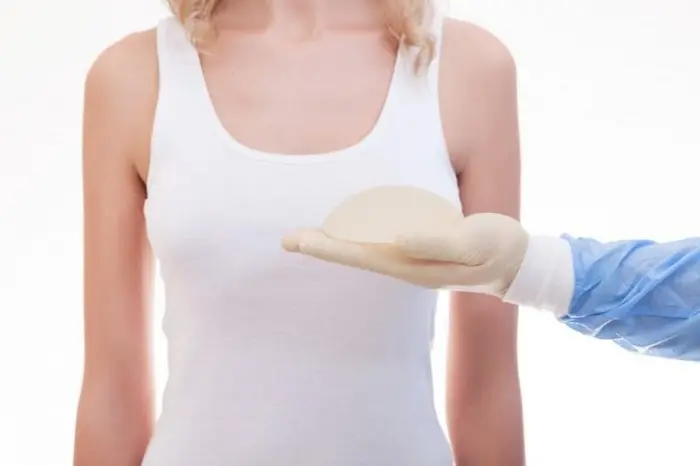Miss Georgina Williams, a consultant plastic and reconstructive surgeon at Imperial College Healthcare NHS Trust, is making a significant impact in the field of reconstructive surgery. Her expertise spans complex procedures, including head and neck reconstruction and breast surgery. Miss Williams also provides critical care at St Mary’s Hospital, where she is involved in the major trauma centre. She recently gained attention through Channel 4’s Emergency documentary, where she was seen operating on a patient who had been severely attacked by multiple dogs. This article explores her daily work, her areas of expertise, and the profound effects of her surgical interventions.
A Glimpse Into a Typical Day
Miss Williams’ day often begins early, at 7:30 AM, in the pre-admission area where she reviews and consents patients scheduled for surgery. This involves marking the surgical sites on the patients’ bodies to prepare them for their procedures. A team meeting follows, where the surgical team, theatre staff, and anaesthetists discuss the day’s patient list. By 8:30 AM, the surgeries commence, with cases involving both local and general anaesthetics scheduled throughout the day to optimize the use of theatre time. Her workday usually concludes between 5:00 PM and 8:00 PM, depending on the number of surgeries. Post-operative care is also a priority, as the team ensures that patients are well enough to go home.
Specialized Expertise in Reconstructive Surgery
Miss Williams specializes in head, neck, and breast reconstruction. Her training includes a fellowship at the Trust, with a focus on free tissue transfer—a complex technique in plastic surgery. This involves transplanting tissue, along with its blood supply, from one part of the body to another. For instance, in breast reconstruction, tissue from the abdomen, including its supplying artery and vein, is transferred to the chest area. There, it is meticulously reconnected to the blood vessels under the ribs, and the tissue is shaped into a breast. This intricate procedure not only restores physical appearance but also aids in the patient’s emotional recovery.
Addressing Trauma: The Case of Heidi
In the Emergency documentary, Miss Williams is featured operating on Heidi, a patient who suffered extensive injuries from a dog attack. The wounds were described as the most severe dog bites she had ever encountered. Upon assessing Heidi’s injuries, Miss Williams immediately focused on life-threatening concerns such as hemorrhaging, breathing, and circulation. Thanks to the stabilizing efforts of the A&E team, Heidi was quickly taken to surgery, where Miss Williams debrided the wounds, removing dead tissue and applying antibiotics to prevent infection. Her prompt action was crucial, as dog saliva contains bacteria that can lead to severe infections.
The Collaborative Effort in Trauma Care
Trauma care is a team effort, and Miss Williams emphasizes the importance of collaboration among various medical professionals. The major trauma pathway is a well-coordinated system that starts with pre-hospital care provided by the London Ambulance Service and sometimes the helicopter emergency medical service. Once the patient arrives at the hospital, the A&E consultant, trauma team, and anaesthetists work together to stabilize the patient. During surgery, a wide range of professionals, including radiographers, scrub staff, healthcare support workers, and operating department practitioners, contribute to the procedure. In Heidi’s case, after the initial surgery, the plastic surgery team performed a skin graft to aid in her recovery, with ongoing care provided by a dedicated team of doctors and nurses.
The Transformative Power of Reconstructive Surgery
Reconstructive surgery can significantly improve a patient’s quality of life. For breast cancer patients, for example, the loss of one or both breasts can deeply affect their sense of identity and self-esteem. Reconstructive surgery offers these patients a chance to regain confidence and embrace a new sense of self. Beyond the psychological benefits, reconstructive surgery also has functional advantages. Procedures like facial nerve palsy repair can protect the eye from exposure-related damage, reduce symptoms such as excessive tearing, and enhance the patient’s appearance. In Heidi’s case, the surgery Miss Williams performed reduced the risk of infection and facilitated a quicker recovery, allowing her to begin rehabilitation sooner—a crucial step in the healing process for trauma patients.
Commitment to Research and Innovation
In addition to her clinical work, Miss Williams is actively involved in research. Throughout her career, she has contributed to various studies related to plastic surgery and has co-authored chapters in surgical textbooks. She led a randomized control trial known as NINJA, organized through the Reconstructive Surgery Trials Network (RSTN) at Chelsea and Westminster, which focused on managing pediatric hand injuries. More recently, her research has concentrated on advancements in breast and head and neck surgery, reflecting her commitment to improving patient outcomes through scientific inquiry.
Passion and Inspiration
When asked about what she loves most about her job, Miss Williams finds it difficult to choose just one aspect. She has a deep passion for solving problems and achieving aesthetic outcomes, which are essential elements in plastic surgery. The ability to make profound changes in a patient’s life through her surgical skills is a source of continual inspiration. She feels humbled by the trust her patients place in her and is driven by the desire to help them achieve the best possible outcomes.
Influences and Inspirations
Miss Williams credits her father, a neurosurgeon, as her initial inspiration for pursuing a career in medicine. His passion for science and nature left a lasting impression on her. Her mother, who became a widow at a young age, also played a pivotal role in shaping her values. Despite facing significant challenges, her mother managed to raise two children and care for her own mother, demonstrating remarkable strength and compassion. These qualities greatly influenced Miss Williams as she grew older.
As a trainee and fellow, the consultants in the Department of Plastic Surgery at Charing Cross and St Mary’s hospitals were instrumental in her professional development. She admires their dedication, willingness to take on challenges, and supportive nature, and is proud to now call them colleagues as a consultant herself.
Related topics:

